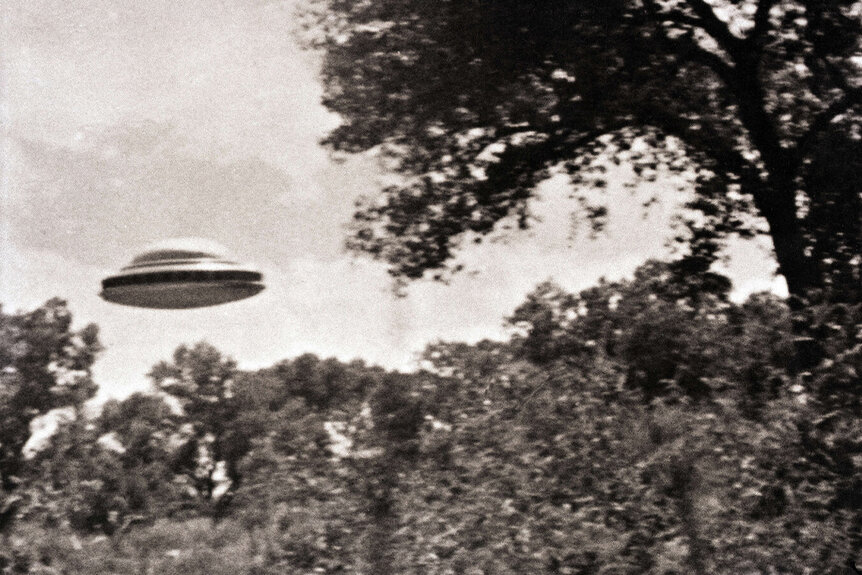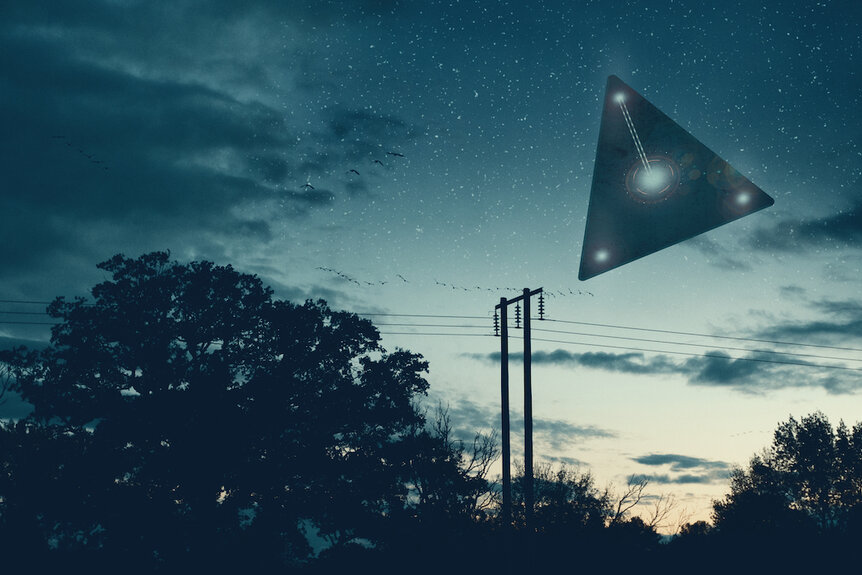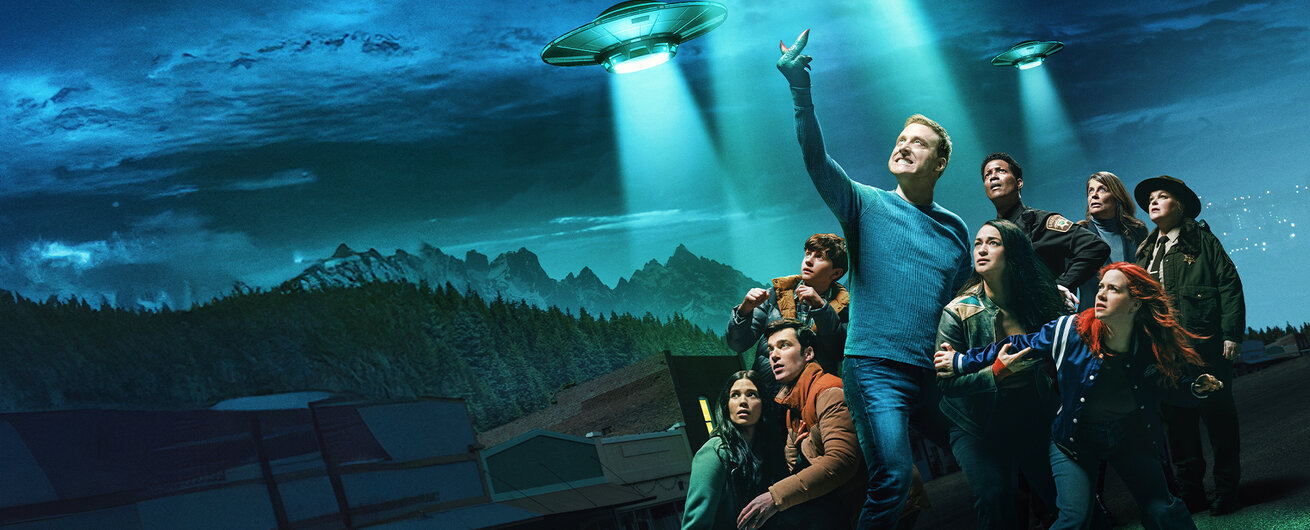Create a free profile to get unlimited access to exclusive videos, sweepstakes, and more!
NASA Releases Details of Organization's UFO Investigation
If there are aliens, NASA wants your help finding them.
Is humanity alone in the vastness of the universe? The best we can really say at this point is that we’re not really sure. We’ve been looking for a while, and as far as we can tell, there’s a lot of wonderful and beautiful things going on out there, but none of it is intelligent. Unless you happen to be reading this from the fictional town of Patience, Colorado and are a character on SYFY's Resident Alien, streaming now on Peacock! In that case, you know that aliens exist because one lives next door.
If you hail from anyplace , the answer regarding our cosmic loneliness isn’t quite as clear. But it’s about to get a lot clearer, if NASA has anything to say about it. Recently, the space agency released the first report from its in-house team of UFO investigators.
NASA’s Independent UFO Panel
NASA commissioned an independent panel of experts back in 2022, with the goal of understanding the current UAP (Unidentified Anomalous Phenomena, previously known as UFOs) landscape and providing insight and recommendations for the future.
RELATED: Former Intelligence Agent Claims U.S. Government Hiding Alien Spacecraft
The fifteen-person panel is made up of astronomers and scientists from a number of universities and organizations, as well as a representative from the Federal Aviation Administration (FAA) and retired astronaut Captain Scott Kelly. They found no evidence of extraterrestrial origin in any existing UAP reports, but they note that there are many which remain unexplained.
“The top takeaway from the study is that there is a lot more to learn. The NASA independent study team did not find any evidence that UAP have an extraterrestrial origin, but we don't know what these UAP are,” NASA administrator Bill Nelson said during a press briefing, via Space.
Perhaps more importantly, they identify a number of existing challenges in the study of UAPs and provide recommendations for how to address them, in the hope that we might be able to better explain these phenomena in the future.
Challenges include resolution limits of existing sensors, including orbiting satellites, and an overall lack of data. In short, UAP reports are sparse and the few reports we do have lack good information to investigate. In most cases, the best anyone can do is shrug their shoulders. The panel also notes that part of what drives a lack of good data is the stigma surrounding the topic of UAPs. Part of solving the UAP question involves eliminating the stigma around reporting and discussing it.
How You Can Help Study UFOs
The panel’s overriding philosophy can be found in the report’s opening line, “The study of Unidentified Anomalous Phenomena (UAP) presents a unique scientific opportunity that demands a rigorous, evidence-based approach.” To that end, the panel recommends a government-wide approach to UAP data acquisition within which NASA will play a key role.
The idea being that NASA’s overt involvement in the study of UAPs will help to reduce stigma and increase reporting. They also note that artificial intelligence and machine learning algorithms are likely critical tools for sifting through large data sets in search of anomalies. But before we can set them loose, we need a lot more data. With regard to UAPs, NASA is saying that if you see something, you should say something.
RELATED: Whatever Happened with Avi Loeb’s UFOs in the Pacific?
Of course, if you do see something you can’t explain, there is no standardized process for reporting the incident. When you have an ill-defined reporting process and a weighty public stigma around reporting, you’re bound to get far fewer reports than you otherwise would. Which is why the panel recommends robust crowdsourcing of sightings from the public by way of a smartphone app which could collect images and metadata from witnesses all over the world.
In essence, the panel didn’t reveal any striking new answers, but they did uncover the harsh reality that we’re not even equipped to tackle the question of UAPs… yet.
Catch up on the first two seasons of Resident Alien, streaming now on Peacock!




































